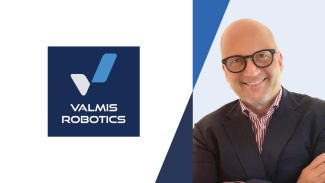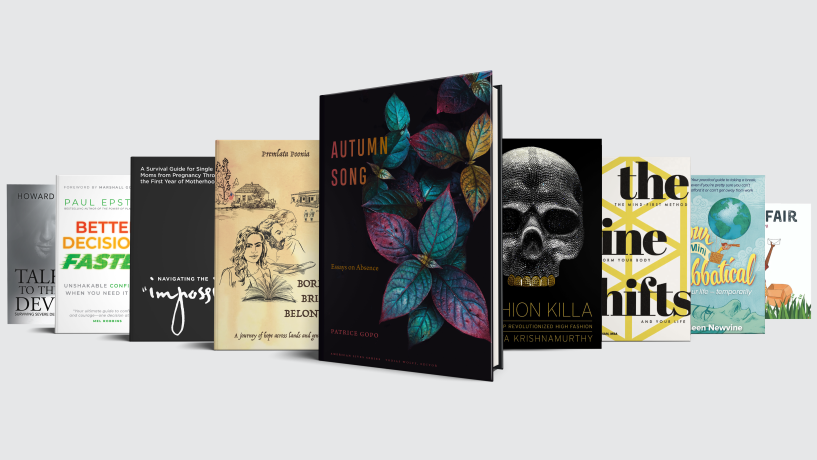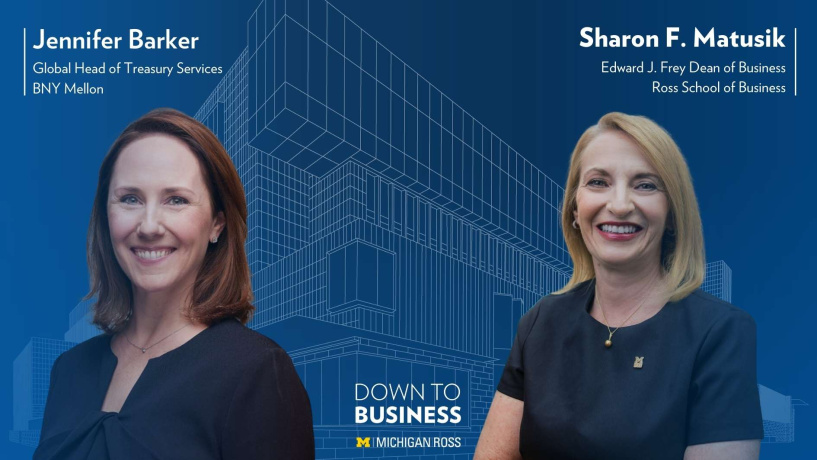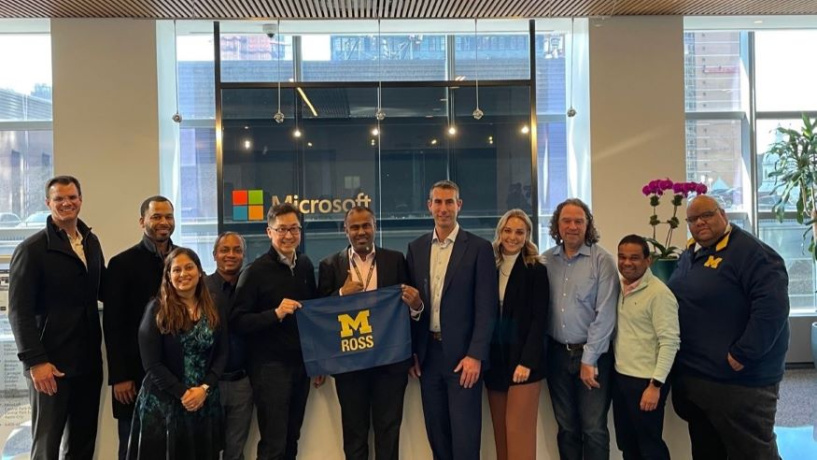Eric Wiideman, MBA ’18: Building a More Sustainable World With AgTech

After years of spearheading international consulting projects in industries from automotive to finance, Eric Wiideman, MBA ’18, is returning to his roots in the agriculture industry, and he’s on a mission to save it.
With years of consulting experience under his belt, Wiideman has now stepped into the role of CEO for Valmis Robotics, a robotics developer for sustainable agriculture. Having grown up on a farm in rural Michigan, this new career direction is a very personal one.
“I'm very empathetic to farmers’ struggles because I felt them myself. One bad storm can wipe you out and too many farmers in the United States are relying on farm subsidies to guarantee a price for corn and soybeans,” Wiideman said.
Fighting for more sustainable farming
The farming industry has faced a growing number of hurdles in recent years. From the adverse effects of climate change on crops to issues like soil depletion, outdated equipment, and financial struggles, there are many pain points that need to be addressed. One of the issues Wiideman hopes to solve for Valmis Robotics’ clients is long-term affordability and sustainability so that farmers can continue to operate without selling their land to a larger entity.
“About two million farms in the United States are 80 acres or less, and many of those small family farms are being consolidated into larger operations because they're no longer farmable as independent, individual farms using current farming techniques,” Wiideman explained. “As that momentum has picked up steam over the last 20 to 30 years, the biggest owners of farmland in the United States are now wealthy investors or corporate entities.”
Wiideman says the problem with this farming model is larger than family farms losing their land.
“Farmers are left chasing economies of scale, which they believe, erroneously, are only achievable with more of the same tools: diesel tractors and chemicals. It’s a losing formula. Bigger tractors mean more debt and more risk. And more chemicals mean more poisoned soil. It’s just not sustainable economically, and it certainly isn’t healthy either,” he said.
As farmland consolidates, fewer and fewer people are getting to decide what you eat, and that's bad. It’s alarming for me because I see that we're headed in the wrong direction with farming. It has to change. Robotic solutions are a start.
Wiideman hopes electric and autonomous tractor technology from Valmis Robotics will help farmers make more efficient and sustainable business choices. The electric tractors being developed by Wiideman’s company would offer farmers an equipment option that requires less maintenance, contributes less to harmful emissions, and helps them save on fuel costs over time.
“As soon as electric farm tractors become more mainstream, any other way of operating your farm will become economically indefensible. And that's because electric tractors are as much as 90% more efficient than diesel,” Wiideman said. “Diesel tractors contribute as much as 12% of all global warming carbon dioxide emissions in the atmosphere. This is one way we can start to deal with that.”
Making connections at Ross
Wiideman’s desire to get involved in sustainable agriculture technology was born from his experiences across the globe. Wiideman spent nearly half of his life abroad, living in Finland, Czechia, France, Belgium, Germany, Chile, Hong Kong, and Indonesia.
While working overseas, Wiideman observed stark differences between the United States and other countries' farming industries. He noticed many other nations employing sustainability practices, from banning harmful pesticides to investing in cleaner technology. That inspired him to want to bring innovation to the U.S. market. But before he could kickstart his project, Wiideman wanted to be prepared for all the new challenges of running his own business. For that, he decided to come to the Ross School of Business.
“Michigan Ross is highly ranked for a reason; it's a very good school. It was a kind of dream for me to be able to attend,” Wiideman said.
At Ross, Wiideman completed the Executive MBA Program, which is designed with experienced professionals in mind.
“I made so many important connections,” Wiideman said. “Someone who helped me a lot at Michigan Ross is Jim Price from the Zell Lurie Institute. He’s been instrumental in helping me move forward with the business. So many of my incredibly hardworking and talented classmates have supported me as well.”
Wiideman also expressed gratitude to Michigan Ross faculty, particularly Sue Ashford, Izak Duenyas, Puneet Manchanda, and M.P. Narayanan, who were all exceptional instructors. He also expressed a special thanks to Donna Delosh and Eric Davis, who have been supportive beyond measure.
Michigan Ross is a wonderful place to get support not only from your classmates but from a diverse group of professionals and academics. It’s just an all-around wonderful experience that gives you this background of business skills, a valuable network, and of course, the clout that the University of Michigan name carries.
Sowing the seeds of future success
Going forward, Wiideman is excited for the future of Valmis Robotics.
“I want to see a broad group of technology being developed to solve many of these problems relative to farming, and using climate change to our benefit is part of the central strategy,” he said. “The future will be all about making the most that we possibly can out of available technology and learning to develop even newer technologies that will allow us to better resist the changes that are now inevitable.”
To Michigan Ross students and alums who are also seeking careers in the sustainability space, he offered this advice:
“I think it’s important to align yourself with like-minded organizations and people,” Wiideman said. “It's a thankless task to try to convince somebody who refuses to open their eyes to the reality of climate change, and it's exhausting. A really important first step is to find a group or community that will actually support you and your ideas to help fight for change. Change is hard, but it also happens to be necessary. And sometimes, bold moves need to be made. So be bold.”







